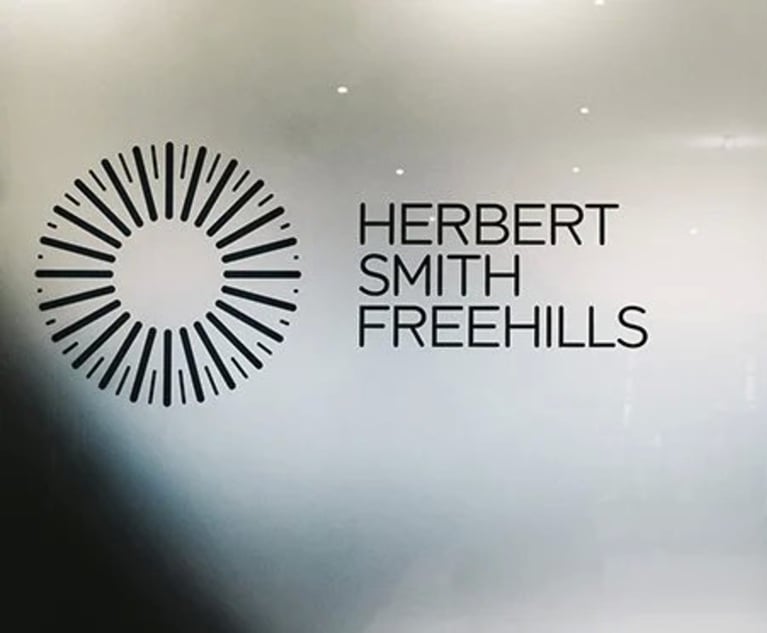Law Society to issue new guidance on non-disclosure agreements as scrutiny over use grows
Society's employment law committee canvasses partners to compile guidelines for NDAs
April 26, 2018 at 09:26 AM
3 minute read
The Law Society is set to issue new guidance on non-disclosure agreements (NDAs) and confidentiality clauses, amid growing scrutiny over their use by law firms and their clients in the wake of the #MeToo movement.
The society's employment law committee – which includes City partners such as Dechert London employment head Charles Wynn-Evans and Taylor Wessing's Sean Nesbitt – is currently canvassing the views of employment partners to formulate the guidance, which it is aiming to release in June.
The guidance will be split into two parts – the first will be issued to solicitors to set out best practice for the use of NDAs, while the second will be publicly available and designed to inform people who sign NDAs of their legal rights regarding such documents.
It is expected that the practice note for Law Society members will contain information on how NDAs should and can be applied in real-life situations based on professional standards, including the need for lawyers to make it clear that such documents should not muzzle potential whistleblowers.
Committee chair Max Winthrop, head of employment at Newcastle firm Short Richardson & Forth, told Legal Week: "There a variety of different interests to carefully balance here. It's always going to be a contentious issue. It's never going to be easy, despite what some may think – there are always areas where knowing what is the right thing to do is going to be difficult. Hence, the employment law committee feels there is a need for further guidance."
He added that the committee would consider whether restrictions on NDAs may be appropriate but said "an outright ban on the use of NDAs or confidentiality provisions would not help employees or employers resolve disputes".
The move comes amid the Women and Equalities Committee's investigation into the potential abuse of NDAs relating to allegations of sexual harassment in the workplace.
During an evidence session held last month (28 March), Harvey Weinstein's former assistant Zelda Perkins spoke of her distress at signing an NDA – drawn up by Allen & Overy partner Mark Mansell – relating to her historical settlement following allegations she had made against the disgraced movie producer.
Perkins said she felt at the time that she would face legal action if she spoke about the details within the NDA, and called for reforms to their use, stating: "I feel let down by the lack of law around them. I'm sure all the lawyers were all working within the legal constraints, but it's more shocking they were able to do that."
Yesterday (25 April), the Solicitors Regulation Authority confirmed it has opened an investigation into A&O's role on the agreement, although Conservative MP Philip Davies questioned the regulator's approach, likening its relationships with major law firms to "a cosy old boys' network".
This March, the SRA warned law firms in England and Wales not to use NDAs to prevent the reporting of professional misconduct within their own businesses, in the wake of several sexual harassment scandals that have rocked the profession.
Winthrop added: "The SRA's warning notice is helpful, and I've already seen clauses appearing in settlement agreements which qualify confidentiality by reference to the expectation the SRA has set out in the notice. In fact, as a simple step, reading the warning notice before a solicitor drafts an NDA or a confidentiality clause may save that solicitor from professional embarrassment or worse."
This content has been archived. It is available through our partners, LexisNexis® and Bloomberg Law.
To view this content, please continue to their sites.
Not a Lexis Subscriber?
Subscribe Now
Not a Bloomberg Law Subscriber?
Subscribe Now
NOT FOR REPRINT
© 2024 ALM Global, LLC, All Rights Reserved. Request academic re-use from www.copyright.com. All other uses, submit a request to [email protected]. For more information visit Asset & Logo Licensing.
You Might Like
View All
Chinese Firms Push For Growth Overseas as DeHeng Launches in Saudi Arabia, Indonesia

De Brauw to Advise on €2.8 Billion Lawsuit Involving Russian Banks

LatAm Deal Digest: Bahamas, El Salvador Undertake Conservation-linked Debt Deals

HSF Leadership Votes to Remove Partner Over ‘Deeply Offensive’ Tweets
2 minute readTrending Stories
- 1Antitrust Class Actions Against CVS, Other Pharmacy Benefit Managers Are Piling Up
- 2Judge Grinds NY's Cannabis Licensing Regime to a Halt Again
- 3On the Move and After Hours: Barclay Damon; VLJ; Barnes & Thornburg
- 4Justices Will Hear First Amendment Challenge to Denial of Tax Exemption for Catholic Charities
- 5Ex-US Sen. Robert Menendez Loses Bid for Retrial
Who Got The Work
Michael G. Bongiorno, Andrew Scott Dulberg and Elizabeth E. Driscoll from Wilmer Cutler Pickering Hale and Dorr have stepped in to represent Symbotic Inc., an A.I.-enabled technology platform that focuses on increasing supply chain efficiency, and other defendants in a pending shareholder derivative lawsuit. The case, filed Oct. 2 in Massachusetts District Court by the Brown Law Firm on behalf of Stephen Austen, accuses certain officers and directors of misleading investors in regard to Symbotic's potential for margin growth by failing to disclose that the company was not equipped to timely deploy its systems or manage expenses through project delays. The case, assigned to U.S. District Judge Nathaniel M. Gorton, is 1:24-cv-12522, Austen v. Cohen et al.
Who Got The Work
Edmund Polubinski and Marie Killmond of Davis Polk & Wardwell have entered appearances for data platform software development company MongoDB and other defendants in a pending shareholder derivative lawsuit. The action, filed Oct. 7 in New York Southern District Court by the Brown Law Firm, accuses the company's directors and/or officers of falsely expressing confidence in the company’s restructuring of its sales incentive plan and downplaying the severity of decreases in its upfront commitments. The case is 1:24-cv-07594, Roy v. Ittycheria et al.
Who Got The Work
Amy O. Bruchs and Kurt F. Ellison of Michael Best & Friedrich have entered appearances for Epic Systems Corp. in a pending employment discrimination lawsuit. The suit was filed Sept. 7 in Wisconsin Western District Court by Levine Eisberner LLC and Siri & Glimstad on behalf of a project manager who claims that he was wrongfully terminated after applying for a religious exemption to the defendant's COVID-19 vaccine mandate. The case, assigned to U.S. Magistrate Judge Anita Marie Boor, is 3:24-cv-00630, Secker, Nathan v. Epic Systems Corporation.
Who Got The Work
David X. Sullivan, Thomas J. Finn and Gregory A. Hall from McCarter & English have entered appearances for Sunrun Installation Services in a pending civil rights lawsuit. The complaint was filed Sept. 4 in Connecticut District Court by attorney Robert M. Berke on behalf of former employee George Edward Steins, who was arrested and charged with employing an unregistered home improvement salesperson. The complaint alleges that had Sunrun informed the Connecticut Department of Consumer Protection that the plaintiff's employment had ended in 2017 and that he no longer held Sunrun's home improvement contractor license, he would not have been hit with charges, which were dismissed in May 2024. The case, assigned to U.S. District Judge Jeffrey A. Meyer, is 3:24-cv-01423, Steins v. Sunrun, Inc. et al.
Who Got The Work
Greenberg Traurig shareholder Joshua L. Raskin has entered an appearance for boohoo.com UK Ltd. in a pending patent infringement lawsuit. The suit, filed Sept. 3 in Texas Eastern District Court by Rozier Hardt McDonough on behalf of Alto Dynamics, asserts five patents related to an online shopping platform. The case, assigned to U.S. District Judge Rodney Gilstrap, is 2:24-cv-00719, Alto Dynamics, LLC v. boohoo.com UK Limited.
Featured Firms
Law Offices of Gary Martin Hays & Associates, P.C.
(470) 294-1674
Law Offices of Mark E. Salomone
(857) 444-6468
Smith & Hassler
(713) 739-1250








